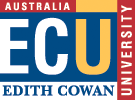COURSE INFORMATION
Disclaimer
This course information may be updated and amended immediately prior to semester. To ensure you have the correct outline, please check it again at the beginning of semester.
| K60 Bachelor of Engineering/Bachelor of Business | ||||||||||||||||||||||||||||||||||||||||||||||||||||||||||||||||||||||||||||||||||||||||||||||||||||||||||||||||||||||||||||||||||||||||||||||||||||||||||||||||||||||||||||||||||||||||||||||||||||||||||||||||||||||||||||||||||
There is a growing demand in high-technology industries and research centres for engineers with knowledge and professional skills in business, management and relevant areas of science. While providing a major area of study in any one of the Civil, Mechanical, Mechatronics, Instrumentation Control and Automation, Computer Systems, Electronics & Communications, or Electrical Power Engineering areas, the double degree program broadens the overall knowledge of students in areas which are complementary to their technical skills. This double degree course requires five years of full-time study.
HONOURS IN ENGINEERING Students whose performance over the five years of the course is of a high standard may be awarded the Bachelor of Engineering with Honours degree.
INTERNATIONAL STUDENTS Overseas students may be admitted to the double degree course subject to the University's fee scale.
The language of instruction is English and all students are expected to be proficient in both spoken and written English. All assessment will be conducted in the English language.
PRACTICUM REQUIREMENTS During the course, students will be required to undertake a minimum of 12 weeks practical work experience located in an engineering industry environment. This will normally be undertaken during a vacation period, even though it is listed as a unit for Year 5 (ENS4111).
ACCREDITATION Engineers Australia has granted Accreditation to this course. |
||||||||||||||||||||||||||||||||||||||||||||||||||||||||||||||||||||||||||||||||||||||||||||||||||||||||||||||||||||||||||||||||||||||||||||||||||||||||||||||||||||||||||||||||||||||||||||||||||||||||||||||||||||||||||||||||||
| ADMISSION REQUIREMENTS In addition to satisfying standard ECU admission requirements, satisfactory performance in TEE (or equivalent) Calculus or Applicable Mathematics is required. Students who have completed a TAFE Diploma or its equivalent in an allied engineering field may be admitted to the Bachelor of Engineering with advanced standing. |
||||||||||||||||||||||||||||||||||||||||||||||||||||||||||||||||||||||||||||||||||||||||||||||||||||||||||||||||||||||||||||||||||||||||||||||||||||||||||||||||||||||||||||||||||||||||||||||||||||||||||||||||||||||||||||||||||
| SPECIAL ADMISSION REQUIREMENTS Note: Students who have not completed TEE Calculus or TEE Physics (or equivalents) will be required to complete bridging units during the first year of their studies. |
||||||||||||||||||||||||||||||||||||||||||||||||||||||||||||||||||||||||||||||||||||||||||||||||||||||||||||||||||||||||||||||||||||||||||||||||||||||||||||||||||||||||||||||||||||||||||||||||||||||||||||||||||||||||||||||||||
| COURSE LOCATION This course is available on Joondalup Campus. |
||||||||||||||||||||||||||||||||||||||||||||||||||||||||||||||||||||||||||||||||||||||||||||||||||||||||||||||||||||||||||||||||||||||||||||||||||||||||||||||||||||||||||||||||||||||||||||||||||||||||||||||||||||||||||||||||||
| MODE OF STUDY This course is available by Full-time, or Part-time mode. |
||||||||||||||||||||||||||||||||||||||||||||||||||||||||||||||||||||||||||||||||||||||||||||||||||||||||||||||||||||||||||||||||||||||||||||||||||||||||||||||||||||||||||||||||||||||||||||||||||||||||||||||||||||||||||||||||||
| MODE OF DELIVERY This course is available in the following mode of delivery - On-campus. |
||||||||||||||||||||||||||||||||||||||||||||||||||||||||||||||||||||||||||||||||||||||||||||||||||||||||||||||||||||||||||||||||||||||||||||||||||||||||||||||||||||||||||||||||||||||||||||||||||||||||||||||||||||||||||||||||||
| COURSE STRUCTURE | ||||||||||||||||||||||||||||||||||||||||||||||||||||||||||||||||||||||||||||||||||||||||||||||||||||||||||||||||||||||||||||||||||||||||||||||||||||||||||||||||||||||||||||||||||||||||||||||||||||||||||||||||||||||||||||||||||
| ||||||||||||||||||||||||||||||||||||||||||||||||||||||||||||||||||||||||||||||||||||||||||||||||||||||||||||||||||||||||||||||||||||||||||||||||||||||||||||||||||||||||||||||||||||||||||||||||||||||||||||||||||||||||||||||||||
Last Updated - Higher Education: 4/30/2009 VET: 4/30/2009
